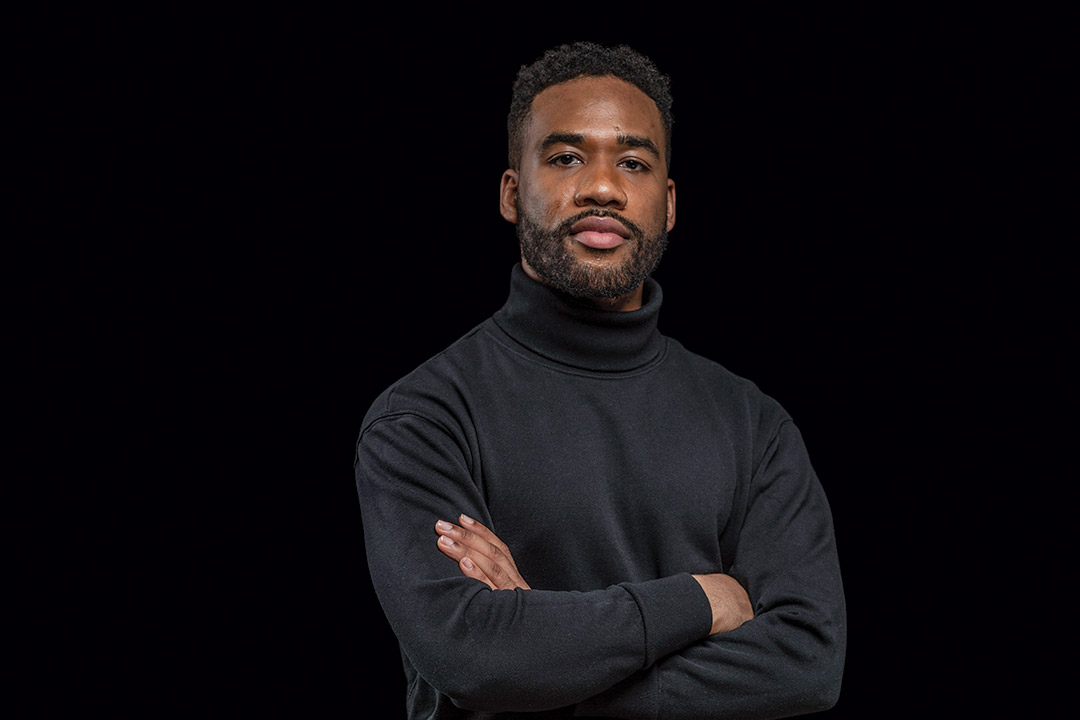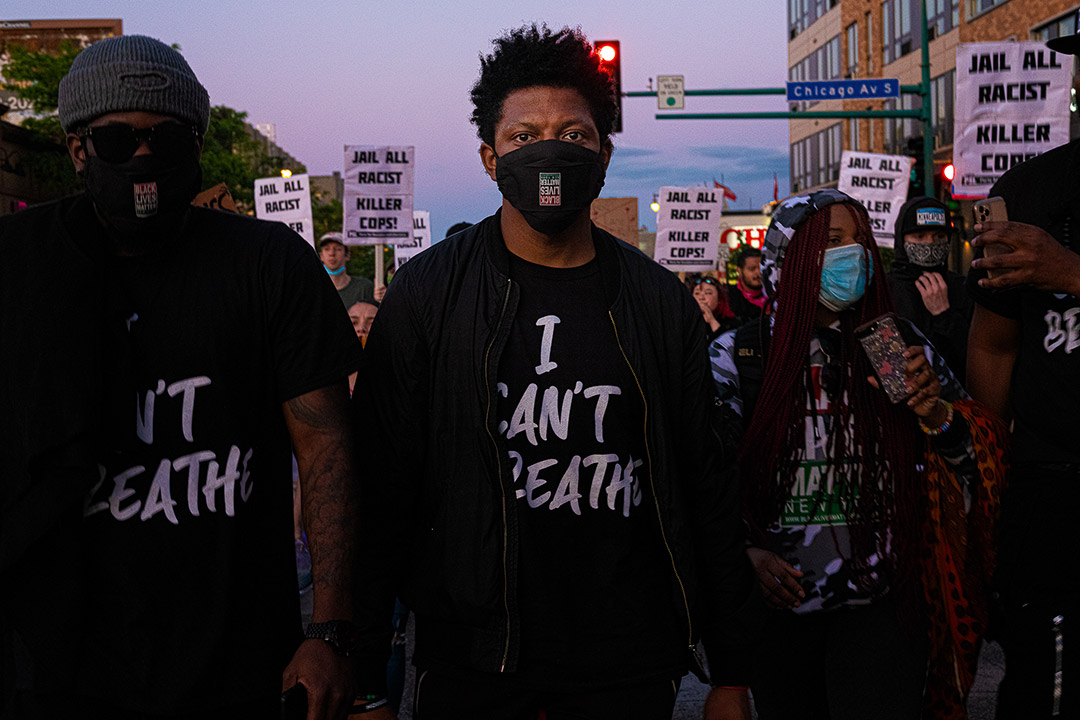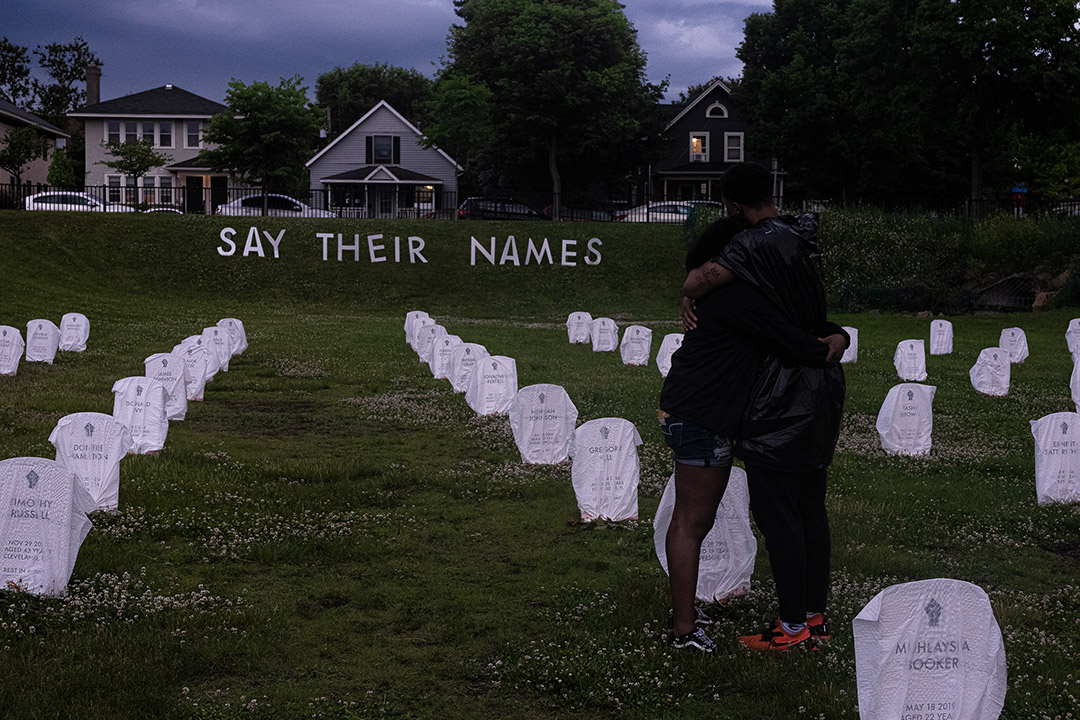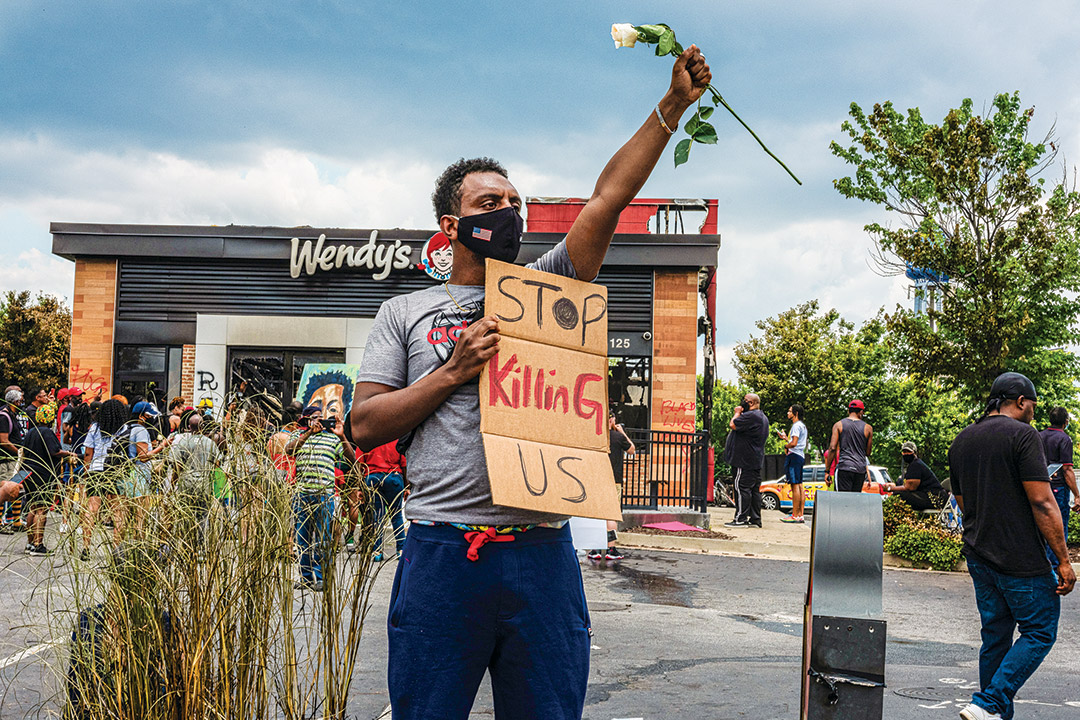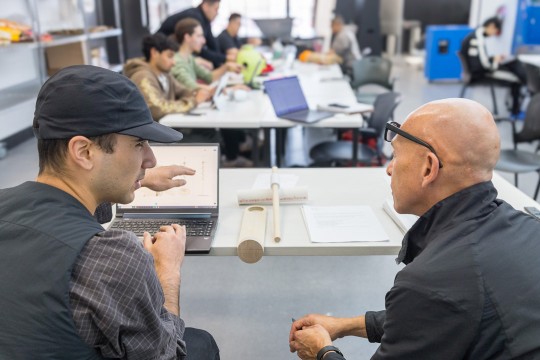Faculty Profile: Joshua Rashaad McFadden
Elizabeth Lamark
Joshua Rashaad McFadden, assistant professor of photography, documents the fight for social justice.
Joshua Rashaad McFadden is an award-winning, internationally recognized assistant professor of photography at RIT’s School of Photographic Arts and Sciences, nationally recognized for its degree programs. A transformative artist, social justice advocate, and change agent, he possesses a unique vision of the Black American experience. His artwork transcends the genres of social documentary, reportage, portraiture, book arts, and fine arts to bring forward powerful stories about the realities of the injustices Black people in America still face today.
Many people don’t know you are from Rochester. How has that played into your work and current sense of place?
Yes, I was born and raised here in Rochester. As many can imagine, photography has always been a big part of my life, actually from the time my mother introduced me to photography at the age of 7. Additionally, much of my family has worked at Kodak. From then on, my goal was to be an artist, and in my newest body of work, I’ve started to explore this notion of family, place, and time.
How has your time in places such as North Carolina, Atlanta, and additional cradles of civil rights movements informed your experience and perspective with your photography?
My experience in these locales has made a profound impact on my work, and it started when I left Rochester in 2008 to attend college at Elizabeth City State University, a historically black college and university (HBCU) in North Carolina, to study fine art. In undergrad, I started an organization that advocated for non-violence, and also focused on voter education and regeneration. That experience led me to intern at The King Center in Atlanta. I worked hand-in-hand with civil rights leaders, such as Bernice King, MLK’s daughter, and many others. That experience guided my decision to move to Atlanta, go to graduate school, and continue to combine my passions for social justice with my art. I created projects like “After Selma,” “Come to Selfhood,” “I AM A MAN,” and a “Lynching’s Long Shadow.”
Tune in
Intersections: The RIT Podcast is a conversation between people whose daily work is making a difference in the world. In this episode, Joshua Rashaad McFadden talks with Todd Jokl, dean of RIT’s College of Art and Design.
Your powerful work in “After Selma” covers the 50th-anniversary march from Selma to Montgomery. How did this experience inform your trajectory to the present?
That was the moment I truly understood that freedom was a constant struggle and that history is not linear but cyclical. We must continue to fight against the evils of oppression, racism, injustice. If we aren’t careful and mindful, then we will always end up where we started but in a worse position, almost like walking two steps forward then taking three steps back.
Do you think there is a relationship between your compelling photographs in your exhibit “Evidence” and recent work showing the Black Lives Matter movement, including the funerals of Black citizens killed by police?
I think multiple threads connect all of my projects. They build on each other. It’s also important to say that Blackness or The Black Experience doesn’t only exist within trauma caused by white supremacy, racism, and police brutality. We are so much more, and my project only begins to tell those various stories. The true problem is that Black Americans are never allowed to just exist without having that existence constantly brought into question.
What role does education play in your work?
Education is integral because everyone learns from art, and there are many concepts visual culture can teach us. I love that photography makes you visualize the unseen and the little known. With it, you see what you can’t ignore or forget, such as the hidden layers of injustice. My goal is to create conscious creators and conscious visual analysts who will be moved to speak out against injustice everywhere. In fact, it should be the goal of all professors to make conscious creators and thinkers because, as it is said, injustice anywhere is a threat to justice everywhere. We all must be part of the solution.
What are some ways in which RIT, the College of Art and Design, and the photography school play in all this?
Again, part of my mission is to develop conscious creators and visual analysts. RIT has allowed me the space to do this. But to make a real change, I need much more support from the entire university, the global community, and everyday positive change agents.
Joshua Rashaad McFadden
Protesters in Minneapolis march in unity in response to the killing of George Floyd.
Joshua Rashaad McFadden
This is a scene from the Say Their Names Cemetery in Minneapolis, located down the street from the George Floyd memorial.
Joshua Rashaad McFadden
A June 14, 2020, protest at the Wendy’s in Atlanta where Rayshard Brooks was shot and killed by police.




